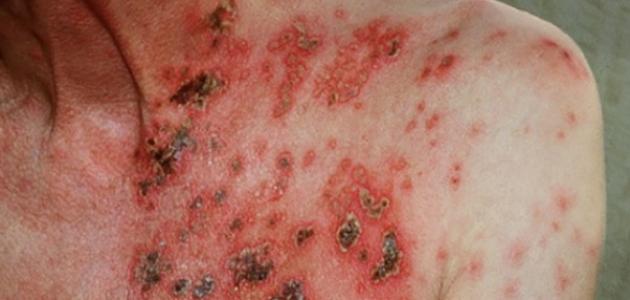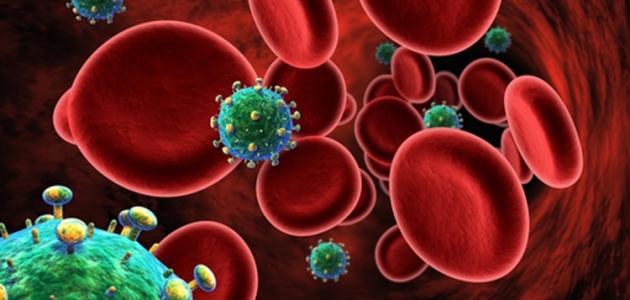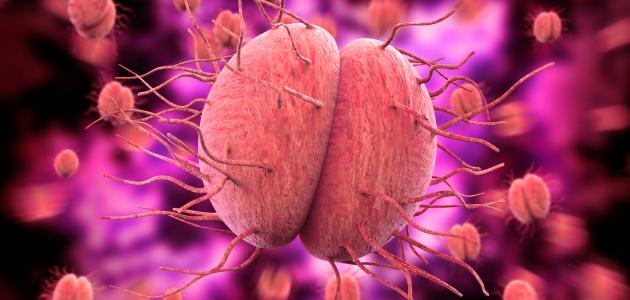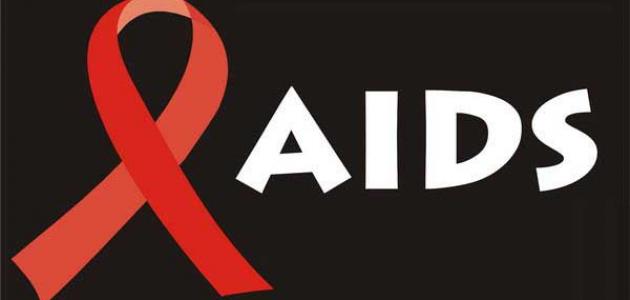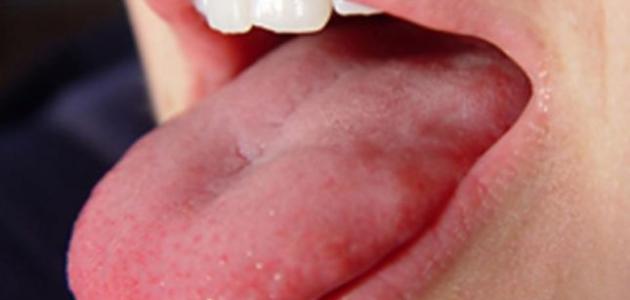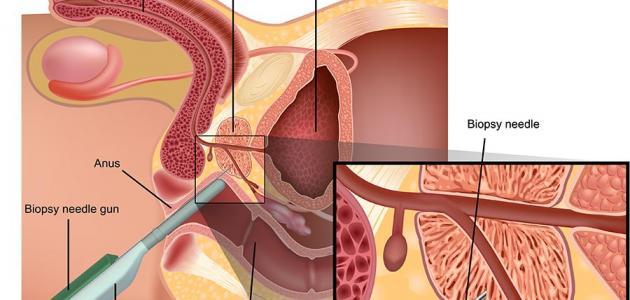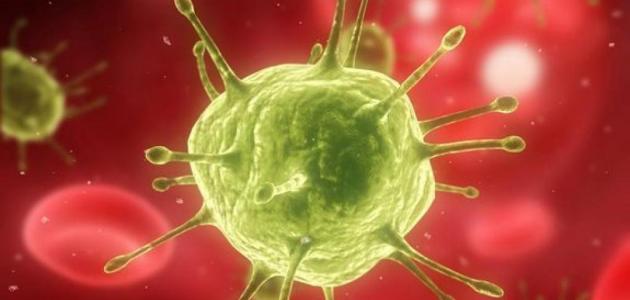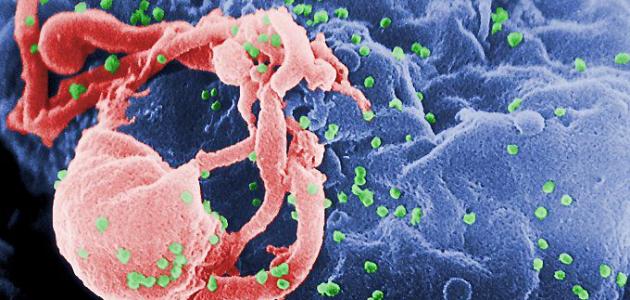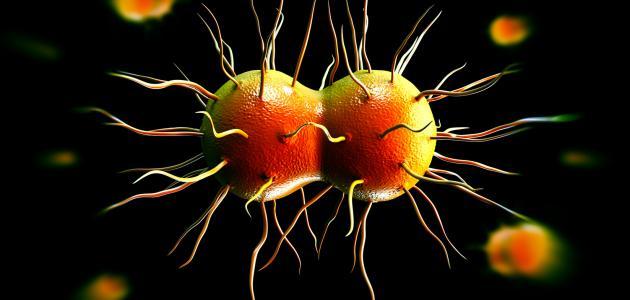Mr.
AIDS is known in French as AIDS, and it is also expressed as Acquired Immunodeficiency Syndrome, and it occurs as a result of exposure to the virus known as the Human Immunodeficiency Virus, which attacks the immune system in the body, and it can be said that AIDS is another The stages of infection with this virus, at this stage the immune system is very weakened, and the body becomes vulnerable to various types of infections and cancers.In fact, the history of this disease dates back to 1981, when the Centers for Disease Control and Prevention (CDC) recorded this year the first cases of opportunistic infections known as Pneumocystis carinii pneumonia. In five homosexual men in the United States of America, followed by recording a case of one of the rare types of cancer known as Kaposi's sarcoma in homosexual people as well. To the transmission of these factors sexually as well as through the blood, and on it this disease appeared and was known. [1]
Symptoms of AIDS
It can be said that reaching the patient’s stage of AIDS means that the immune system is at its utmost weakness, due to the destruction of a large number of one of his types of cells known as Cluster of Differentiation 4 (CD4), and then the person becomes exposed to various types of infections and opportunistic cancers. And his infection with any of them causes a group of symptoms and signs, which can be summarized as follows: [2] [3]
- Unexplained weight loss.
- Symptoms of pneumonia .
- Tuberculosis , which is the most common type of infection that affects AIDS patients.
- Seizures of convulsions, feeling weak, and changes in mental abilities, as a result of infection with toxoplasmosis, which is a parasitic infection that affects the brain.
- Symptoms of nervous system disorders due to meningitis .
- Feeling of pain during swallowing as a result of infection with candidiasis or depressions (in Latin: Candidiasis), which is a fungal infection that affects the esophagus.
- The aforementioned Kaposi's sarcoma cancer, which is characterized by the appearance of spots on the skin, and may spread to the mouth, small intestine , and respiratory system.
- Lymphoma, which is a cancer of the white blood cells .
- Feeling tired and general fatigue.
- Excessive night sweating.
- Have a fever frequently.
- Rash .
- Confusion, confusion, and inability to sleep.
Treatment for AIDS
In fact, there is no cure for AIDS , but there are some treatment options that control the causative virus and limit its spread, and they can be summarized as follows: [4]
- Drug treatments: It is the administration of drugs belonging to the group known as antiretroviral drugs , and for this group there are different drugs, each of which works in a different way to inhibit the action of HIV , and the specialist doctors advise to give these drugs to all infected people regardless of the number of cells Differentiation block 4, and often it is required to give three drugs from two different groups to prevent exposure to virus resistance to antibiotics, and among the drugs of this group are the following:
- Nucleoside or nucleotide reverse transcriptase inhibitors, such as lamivudine / zidovudine , tenofovir / emtricitabine.
- Non-nucleoside reverse transcriptase inhibitors, such as efavirenz.
- Protease inhibitors, such as indinavir, Darunavir, and atazanavir.
- Entry inhibitors.
- Integrase inhibitors, such as raltegravir and dolutegravir.
- Home remedies: In addition to medicinal treatments, some home remedies must be used to maintain the health of the patient as much as possible, including the following:
- Eat healthy food, such as vegetables, fruits, and whole grains, to keep the immune system healthy and strong.
- Avoid eating raw meat, unpasteurized dairy products, eggs and raw fish.
- Taking appropriate vaccinations, in order to reduce exposure to infection, and it must be noted that the vaccines given to people with AIDS must not contain live viruses due to the weakening of their immune system.
- Wash hands well after handling animals to prevent transmission of parasites that may live in them.
- Alternative treatments: There are some nutritional supplements that are believed to strengthen the immune system or prevent the side effects of using antiviral drugs, but there is no scientific evidence to support this, and on the contrary, it is worth noting that these supplements interfere in the work of medicines and their effect on them.
Methods of transmission of AIDS
AIDS is transmitted through the arrival of a person's body fluids, such as semen, vaginal secretions, or blood to others. Among the possible ways of transmission are the following: [3]
- Sexual contact with the infected person in any way, due to the possibility of transmitting the virus through mouth sores , wounds or small tears that occur in the rectum or vagina when having sex.
- Blood Transfusion, but this risk has been greatly reduced in the United States of America due to the checks of blood samples before transferring them from one person to another.
- Share the injection with the injured person.
- Transmission of the virus from a mother to her child during pregnancy, during childbirth, or when breastfeeding, and it should be noted that receiving treatment during pregnancy by mothers infected with this virus greatly reduces the risk of transmission of the virus to the fetus.
References
- ↑ "AIDS" , www.britannica.com , Retrieved February 27, 2018. Edited.
- ↑ "Acquired Immunodeficiency Syndrome (AIDS)" , www.medicinenet.com , Retrieved February 27, 2018. Edited.
- ^ A b " of HIV / AIDS" , Www.mayoclinic.org , Retrieved February 27, 2018. Edited by .
- ↑ "HIV / AIDS" , www.mayoclinic.org , Retrieved February 27, 2018. Edited.
